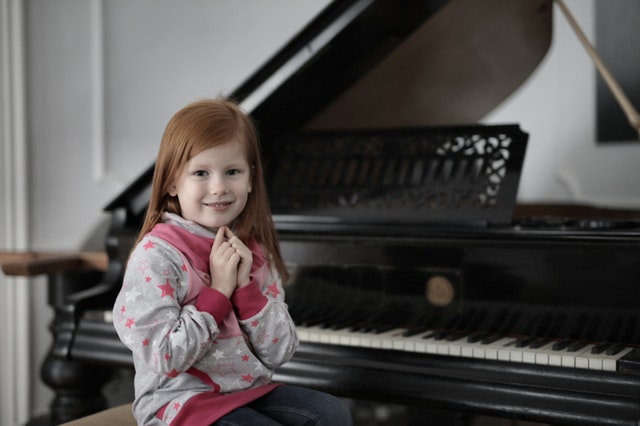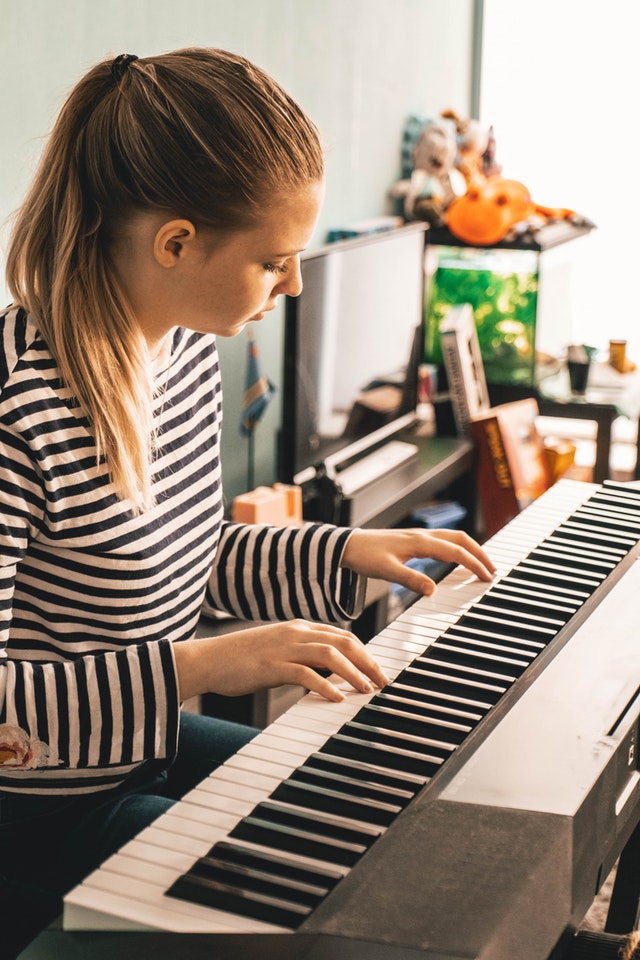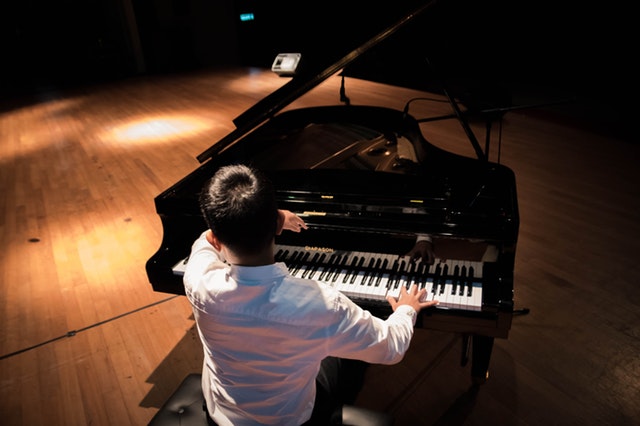
Why should you get your child to take lessons?
SOCIAL DEVELOPMENT
* Learn to be respectful
It is important for your child to learn to interact with adults other than you. A good piano teacher will help your child build a good teacher-student relationship, which will make him feel comfortable expressing her thoughts verbally, expressing herself musically through piano playing and asking questions. Your child will learn to greet her teacher and possibly the students, who will come to the lesson before her and after her. And your child will learn to say, “Thank you,” not just to the piano teacher for the lessons but also to you for taking her to the piano lessons and for encouraging her to stay motivated mainly by facilitating a good environment, which helps her practise at home.
* Learn self-confidence through piano performance
Your child will learn to perform in front of her family. She will be rewarded by your encouragement, applause and adulations. If she feels comfortable enough, then she will have chances to perform in the student piano recitals and festivals. Your child may even perform as an accompanist for her school choir.
* Be respected by others
The piano is still considered to be a mark of social status for the middle class. One of the priceless gifts you could possibly give to your child is piano education.
PHYSICAL DEVELOPMENT
* Learn to move fingers independently
Your child will learn to move one finger at a time with precision. She will be given finger exercises and etudes (studies, which work on certain finger technique).
* Learn to develop hand-eye coordination
Your child will learn to look at the music as she moves the fingers of her left hand and right hand.
* Learn to move her hands independently
Your child will learn the notes and rhythm for each hand separately before playing with hands together. She will learn to tap the rhythm for each hand separately on a piano lid or at a table before tapping the rhythm for both hands together.
INTELLECTUAL OR COGNITIVE DEVELOPMENT
* Learn to pay close attention to details
In order to be able to play a simple piano piece, your child needs to know at least the following:
(a) How to read each note (music note reading)
(b) How to find the correct key on the keyboard (keyboard orientation)
(c) How to keep the pulse (beat)
(d) When to hit the correct key (rhythm)
(e) How long you need to hold that key (articulation and duration)
(f) How much force is needed to press that key (dynamics)
* Learn problem solving skills
Once your child finishes playing a piano piece, she will start to reflect on how well she has played, and what she needs to work on in order to make her piece sound even better.
* Learn time management
Your child will learn to arrive at her piano teacher’s studio on time for her piano lesson. If she has a sibling or siblings, she will learn to decide who will go first and who will go second, etc., and not waste her own lesson time arguing about it. Your child will learn to determine when she should practise playing the piano at home.
CREATIVE DEVELOPMENT
Your child will not just hear a sound and consider it as a noise. She will realise that certain combination of sounds would make her feel happy or sad and be able to find out why. Maybe, she may listen to a piano piece and be reminded of a bell or water or pouring rain. She may wish to improvise or compose a piano piece. Being a piano performer, your child will not need an accompanist as often as violinists or other instrumentalists do. At an advance level, your child may be able to play an orchestral reduction of a symphony or an opera.
EMOTIONAL DEVELOPMENT
* Learn to express emotion
Your child will be able to express which pieces she likes and why she likes them. She will learn that each piece conveys different emotions. She will learn that depending on the mood that she is in, her playing will be different. For example, if she is nervous or agitated, she is most likely to play her pieces faster with more mistakes than usual.
* Learn to release emotion
When your child is stressed out, she will need an emotional outlet. One way of releasing her emotion is through playing her favourite piano piece.


